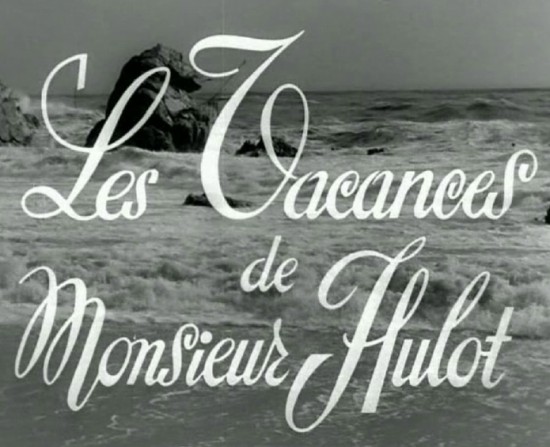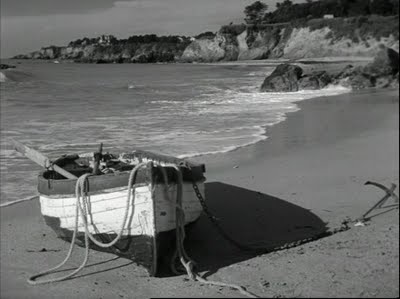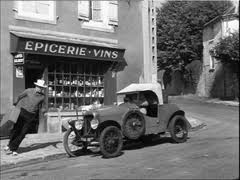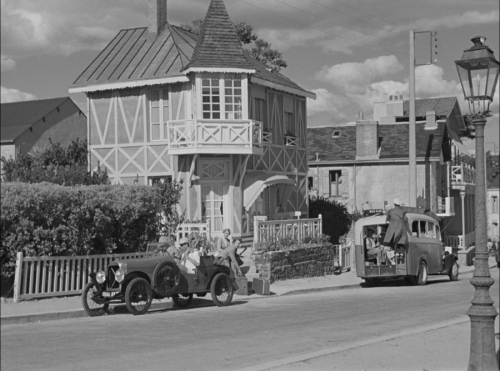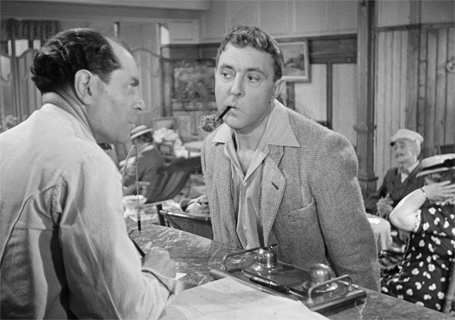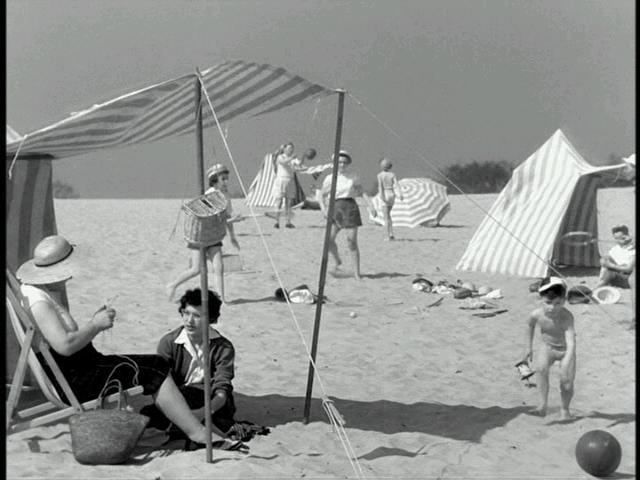From Video Times (February 1985). — J.R.
Mr. Hulot’s Holiday
(1953), B/W, Director: Jacques Tati. With Jacques Tati, Nathalie Pascaud, André Dubois, and Michelle Rolla. 96 min. Embassy, $59.95
Popular films that are also works of art are rare gems, and Mr. Hulot’s Holiday remains one of the artistic jewels in movie comedy. It is as great in its way as the best of Chaplin and Keaton. A radically different way of experiencing the world. it is such an unpretentious movie that it initially comes across as anything but radical. Even the set of instructions at the opening of the film are so laid-back and unassuming that they are hardly instructions at all: “Mr. Hulot is off for a week by the sea…Spend it with him…Don’t look for a plot, for holiday is meant purely for fun…If you look for it, you will find more fun in ordinary life than in fiction…So relax and enjoy yourselves…See how many people you can recognize. You might even recognize yourself.”
The preceding appears over waves crashing against the shore; director Jacques Tati, who also plays the title hero, Monsieur Hulot, then cuts to a shot of an abandoned boat on the beach. He holds on the boat until another succession of waves come in, then cuts to a crowded, noisy railroad station in France at the peak of the summer season. In these two elemental shots, the world of the entire movie is musically set down before us in matching phrases: the leisurely pace of a seaside hotel and the rhythms of the city; calm and activity; emptiness and fullness; silence and sound. All that’s missing is a protagonist or hero, and before the movie introduces us to one, it lingers over the comic spectacle of various passengers at the station. The voice announcing trains over the loudspeaker is completely indecipherable. Families appear in turn at different platforms, always missing the right train as they madly rush about to the metallic incantations of the droning voice.
When Hulot, the apparent hero, finally appears, he’s less a character than a particular kind of essence. We perceive him first through his ridiculous old-fashioned car. Its uncertain progress down the road is contrasted with other, more streamlined vehicles that pass him en route to the sea. Before we even see Hulot whole, his unpredictability and his gentle nature have already insinuated themselves. When he finally enters the hotel, drawing in a calamitous gust of wind with him, his dreamy countenance becomes a threat to the regulated rituals of the other guests. A square peg in a round hole, Hulot functions as a kind of lens through which we view everyone else (as the opening has instructed, we “take a seat behind his camera”). His freewheeling approach gently rebukes the mechanical way most people pursue their vacations.
By the end of the film, Hulot’s hilarious mishaps have affected everyone else’s holiday for better and for worse, and affected our own sense of vacationing as well. As perfectly constructed and almost as densely articulated as Tati’s later masterpiece Playtime (1967), Mr. Hulot’s Holiday fares much better on video because its dimensions are more containable on the smaller screen. The first of Tati’s Hulot comedies, it represents the best possible introduction to the great director’s charm as well as his art. And it is the definitive look at the lighter side of summer vacations.
— JONATHAN ROSENBAUM

